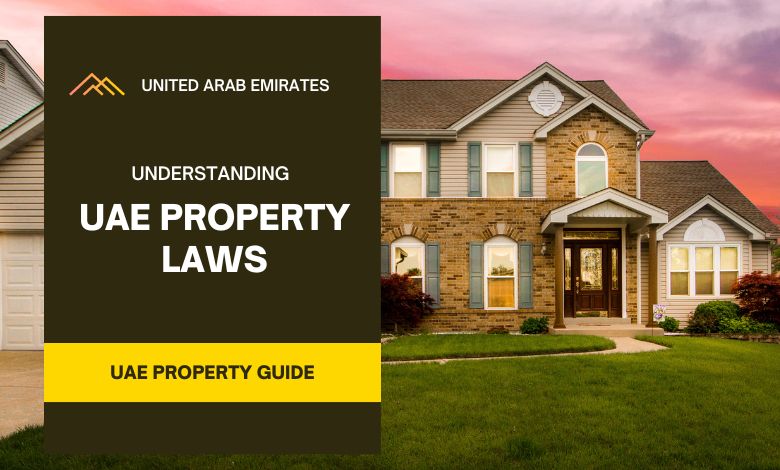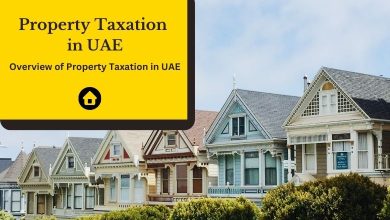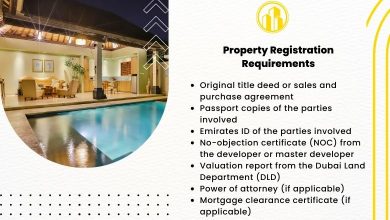Understanding UAE Property Laws: A Comprehensive Guide

The United Arab Emirates (UAE) is a land of opportunities, attracting expatriates and investors worldwide. The country has a booming real estate market that offers lucrative investment opportunities. However, it is crucial to understand the UAE property laws to avoid legal complications and ensure compliance with regulations.
The UAE has a well-defined legal framework that governs the country’s purchase, sale, lease, and ownership of property. Understanding these laws is essential for anyone who wishes to invest in the UAE’s real estate market. This article comprehensively guides UAE property laws to help you navigate the legal landscape.
The United Arab Emirates (UAE) is a thriving hub for real estate investment and property buyers worldwide. With its world-class infrastructure, tax-free environment, and stable economy, the UAE attracts property investors and buyers looking for lucrative investment opportunities. However, before investing in the UAE’s property market, it’s crucial to understand the country’s property laws to avoid any legal complications.
This article will provide a comprehensive guide to understanding UAE property laws.
- Ownership Structure In the UAE, foreign nationals can own freehold property in designated freehold areas. These areas include Dubai’s Palm Jumeirah, Downtown Dubai, and Jumeirah Lakes Towers, among others. Outside freehold areas, foreigners can own property on a leasehold basis for up to 99 years.
- Legal Documentation When purchasing a property in the UAE, having all legal Documentation in order is crucial. This includes a sales and purchase agreement, title deed, and property registration. It’s essential to ensure that all legal Documentation is accurate and up-to-date to avoid any legal disputes.
- Financing Options In the UAE, several financing options are available for property buyers, including mortgages and bank loans. However, it’s important to note that obtaining financing as a foreign national can be challenging, and many banks may require a higher down payment and interest rates than for residents.
- Taxes and Fees In the UAE, several taxes and fees are associated with purchasing a property, including property registration fees, transfer fees, and agency fees. It’s important to factor in these costs when buying a property.
- Property Maintenance In the UAE, property owners are responsible for the maintenance of their properties, including repairs and renovations. Budgeting maintenance costs, including cleaning, repairs, and upgrades, is essential.
- Rental Income Investing in property in the UAE can be lucrative, with rental income potential for those who choose to rent out their properties. However, knowing the legal requirements for renting out a property and obtaining the necessary permits and approvals is essential.
- Real Estate Agents Working with a reputable real estate agent can be invaluable when navigating the UAE’s property market. An experienced agent can guide buyers through the legal requirements and Documentation needed to purchase a property and offer insight into the local real estate market.
Read More About Living in Downtown Dubai: What You Need to Know
Comprehensive guide to the UAE property laws and Regulations:
Freehold Ownership:
Freehold ownership is a type of ownership that allows the owner to own the property outright. In the UAE, freehold ownership is available to foreigners in designated areas, such as Dubai, Abu Dhabi, Sharjah, and Ajman. The UAE property laws allow foreigners to own freehold property for up to 99 years, after which they can renew their ownership rights.
Leasehold Ownership:
Leasehold ownership is another type of ownership available in the UAE. It allows the owner to lease the property for a fixed period. The lease period can range from a few months to several years, depending on the agreement between the parties. The UAE property laws govern leasehold ownership, and these laws protect tenants.
Property Registration:
All property transactions in the UAE must be registered with the Dubai Land Department (DLD) or the Abu Dhabi Municipality (ADM). The registration process involves paying a fee and submitting relevant documents, such as the sale and purchase agreement, the title deed, and the passport copy of the parties involved.
Property Taxes:
The UAE property laws do not levy property taxes on homeowners or investors. However, there are specific fees that property owners must pay, such as the annual service charges for maintenance, repair, and upkeep of common areas and facilities.
Property Disputes:
In a property dispute, the parties can seek legal recourse through the UAE courts or the Dubai Land Department’s Rental Dispute Settlement Centre (RDSC). The RDSC provides an efficient and cost-effective way to resolve property disputes, and its decisions are binding on both parties.
FAQs related to UAE property laws:
Q. Can foreigners own property in the UAE?
A. Yes, foreigners can own property in designated areas of the UAE under the freehold ownership system.
Q. What is the difference between freehold and leasehold ownership?
A. Freehold ownership allows the owner to own the property outright, while leasehold ownership allows the owner to lease the property for a fixed period.
Q. Are property taxes levied in the UAE?
A. No, the UAE property laws do not levy property taxes on homeowners or investors.
Q. How can property disputes be resolved in the UAE?
A. Property disputes can be resolved through the UAE courts or the Dubai Land Department’s Rental Dispute Settlement Centre (RDSC).
Conclusion:
UAE property laws provide a clear and well-defined legal framework for the country’s purchase, sale, lease, and ownership of property. Understanding these laws is essential for anyone who wishes to invest in the UAE’s real estate market. This guide provides a comprehensive overview of the UAE property laws to help you navigate the legal landscape and ensure compliance with regulations. By following these laws, you can enjoy the benefits of owning or investing in property in the UAE without any legal complications.



